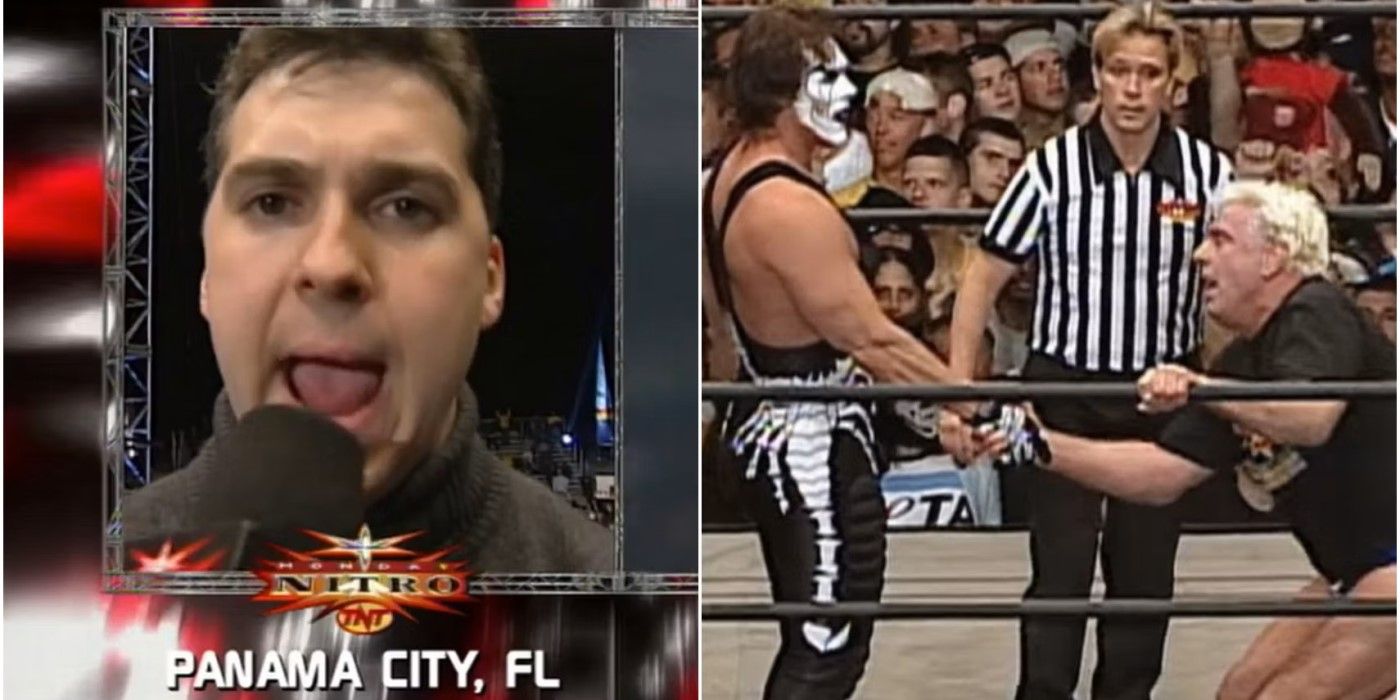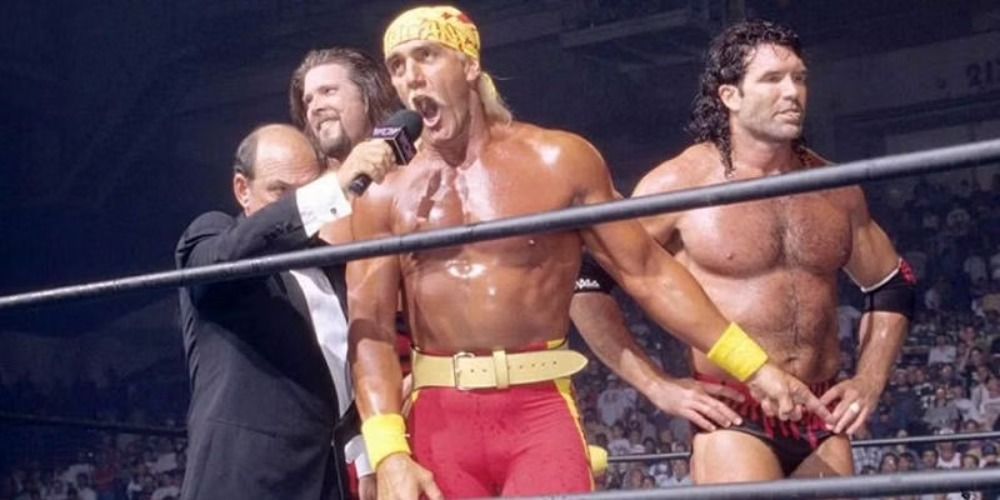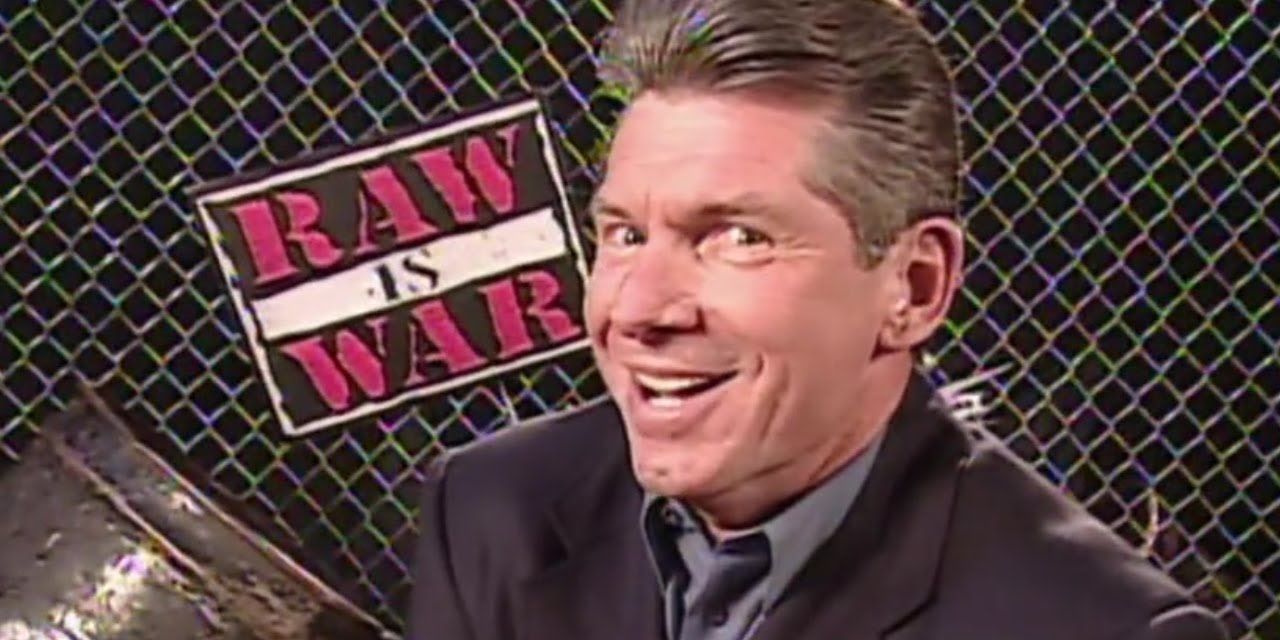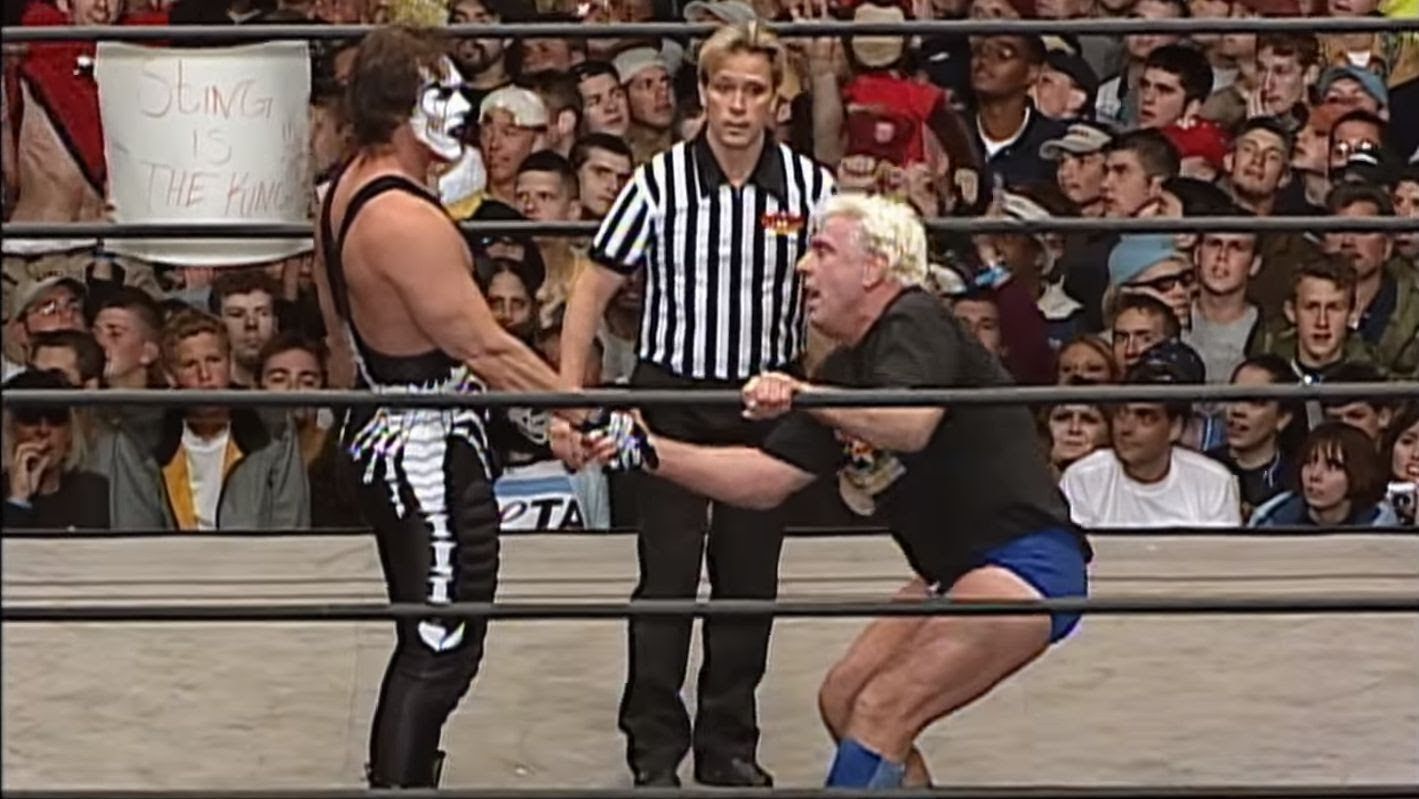Quick Links
WWE might be a global juggernaut today and far ahead of any other competition on a worldwide scale, even AEW, but this was not always the case. Back in the 90s, there was a point of time when WWE was actually lagging behind WCW, and there was a genuine chance that Vince McMahon's company might end up folding.
For 83 straight weeks, WCW managed to beat WWE in the ratings, but the tide would turn soon. When it did, there was really no coming back for WCW.
While WWE continued to grow in popularity during the Attitude Era, WCW stagnated and eventually declined to the point where Vince ended up buying the company in 2001. Why did it go so wrong for WCW, when they were the biggest wrestling promotion in the world just a few years prior to that?
What Led To WCW's Downfall?
At their best, WCW was consistently outdoing the WWE and revolutionized the business with the nWo, which transformed the roles of babyfaces and heels in wrestling forever. At the same time though, in many ways, the reason behind WCW's greatest successes also led to the company's downfall.
WCW just did not evolve with the times like the WWE. They continued to rely on established stars like Hulk Hogan, Ric Flair, Randy Savage, Sting, Bret Hart, Kevin Nash and others, and the nWo storyline dragged on for much longer than it should have. Thus, Nitro went from an edgy and revolutionary TV show to boring and monotonous, and sometimes completely ridiculous when Vince Russo was booking.
On the other hand, WWE was able to create one star after another in the late 90s. Stone Cold Steve Austin, The Rock, Triple H, Mankind, Kane and several others took off as main event stars during this era. Interestingly, it was WCW who had let a number of them leave.
WCW did try to create new stars of their own and succeed to some extent, with the likes of Booker T, Jeff Jarrett, and Scott Steiner, but then it was too late, and those names felt underwhelming considering the people on the other channel.
Thus, by 2001, it was clear that WCW had no chance of competing with the WWE, and they were losing a lot of money as well, which led to its sale.
The Last Episode Of WCW Monday Nitro
The final episode of WCW Monday Nitro aired on March 26, 2001 from Panama City, Floria. For many, it was an emotional occasion, as it was not only the official ending of the Monday Night War but also of a company that had managed to produce a lot of great wrestling memories during its existence.
The show made no secret of the fact that the company had been sold to the WWE. In fact, it started with Vince McMahon announcing that he had bought WCW. Then, throughout the final episode of Nitro, several segments involving him would air.
On the other hand, in the ring, several championships would be defended on the night. This was a great way for the WWE to put the belts on those who they wanted to.
Booker T would beat Steiner to win the WCW World Heavyweight Championship, while retaining the United States Championship. Rey Mysterio and Billy Kidman would win the Cruiserweight Tag Team Championship from Elix Skipper and Kid Romeo. Shane Helms retained the Cruiserweight Championship, while Sean O'Haire and Chuck Palumbo retained the World Tag Team Championship. A number of these wrestlers were signed by the WWE, while many were not.
Sting Vs Ric Flair Was The Final Match On The Last Nitro
The final episode of Monday Nitro did not feature a number of top stars who were a big part of the show over the years. It did feature Sting and Flair though, who were perhaps the two wrestlers most synonymous with WCW.
Sting and Flair had wrestled each other in the first ever Monday NItro, and it was fitting that they would also face off in the final match in the show's history.
As a match, it was not the greatest ever, but it did not need to be. It was a historic moment in wrestling, with Sting beating Flair with a Scorpion Deathlock. The two would embrace in the ring afterwards.
Shane McMahon Owns WCW!
The final segment on the show saw Vince at RAW, in front of the fans. He cut a very good promo in his Mr McMahon character before he was interrupted by Shane McMahon. Shane was not on Raw, however. Instead, he was shown to be in the ring live from Monday Nitro, as he announced that it was him and not Vince, who owned WCW.
It is safe to say that it was a fitting end to the final episode of Monday Nitro, which can only be described as 'complete chaos'. Ultimately, the storyline led to the Invasion in the WWE, but that proved to be a major flop, as a number of WCW's top stars did not make the jump immediately.




